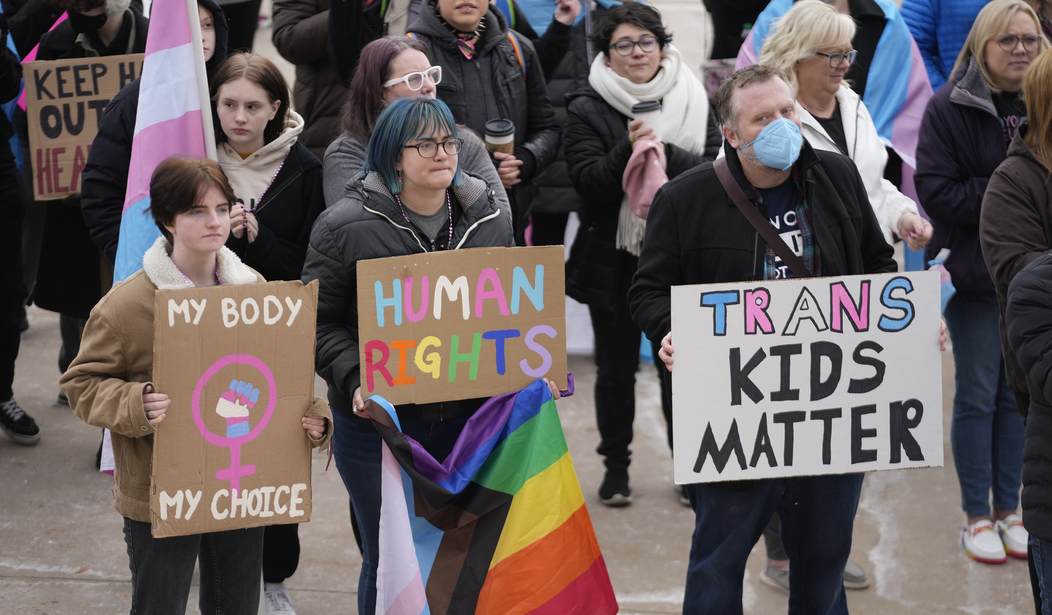This week, federal judges in Kentucky and Tennessee blocked portions of laws that banned experimental, irreversible transgender treatments for minors.
Reportedly, in both cases, the judges blocked portions of the laws that would have banned children who believe they are “transgender” from obtaining puberty blockers and hormone therapy treatments. In Tennessee, the judge did not block the ban on irreversible sex reassignment surgeries for children. The Kentucky case did not address transgender surgeries (via the Associated Press):
Meanwhile, the Kentucky case didn’t address surgeries, but U.S. District Judge David Hale, an Obama administration appointee, did side with seven transgender minors and their parents, who sued the state officials responsible for enforcing the provisions banning the use of puberty blockers and hormones. The plaintiffs contend the ban would violate their constitutional rights and interfere with parental rights to seek established medical treatment for their children.
The ruling blocked the “most egregious parts of Kentucky’s anti-trans law,” said Chris Hartman, executive director of the Fairness Campaign, a Kentucky-based LGBTQ+ advocacy group.
Hartman added that transgender children and their families were “living in fear” of the approaching date for the restrictions.
[...]
In Tennessee, U.S. District Judge Eli Richardson, a Trump administration appointee, stressed that his ruling lined up with federal decisions blocking similar bans across the country but added that courts must “tread carefully” when preventing a law from being enforced.
“If Tennessee wishes to regulate access to certain medical procedures, it must do so in a manner that does not infringe on the rights conferred by the United States Constitution, which is of course supreme to all other laws of the land,” Richardson wrote.
Recommended
In response to the judge’s ruling in Kentucky, Republican Attorney General Daniel Cameron said the decision was “misguided” and that transgender treatments “are not based on science.”
“I will always fight the radical idea that risky drugs and life-altering surgical mutilations should be tools to put confused children on an inevitable path towards a life of gender dysphoria,” Cameron wrote. “There is nothing ‘affirming’ about this dangerous approach to mental health[.]”
My statement on a court’s decision to temporarily block a section of Senate Bill 150 that protects Kentucky kids from gender transition procedures: pic.twitter.com/kKod4vkY0b
— Attorney General Daniel Cameron (@kyoag) June 28, 2023
Reportedly, Democratic Kentucky Gov. Andy Beshear vetoed his state’s measure, but the state lawmakers overrode the veto.
In Tennessee, lawmakers brought forth the legislation prohibiting transgender surgeries and treatments for children after reports broke that Vanderbilt University Medical Center was providing this kind of care because it’s profitable, which Townhall covered.
At least 20 states have enacted legislation banning transgender treatments for minors, as well as restricting transgender athletes from playing in women’s sports. A poll published by Gallup this month found that the majority of Americans, 55 percent, consider “changing one’s gender” to be “morally wrong.” On the other hand, 43 percent said they believe it is “morally acceptable.” Compared to results collected by Gallup in 2021, 51 percent of respondents said that changing one’s gender was “morally wrong,” while 46 percent said it was “morally acceptable,” as Townhall covered.

























Join the conversation as a VIP Member